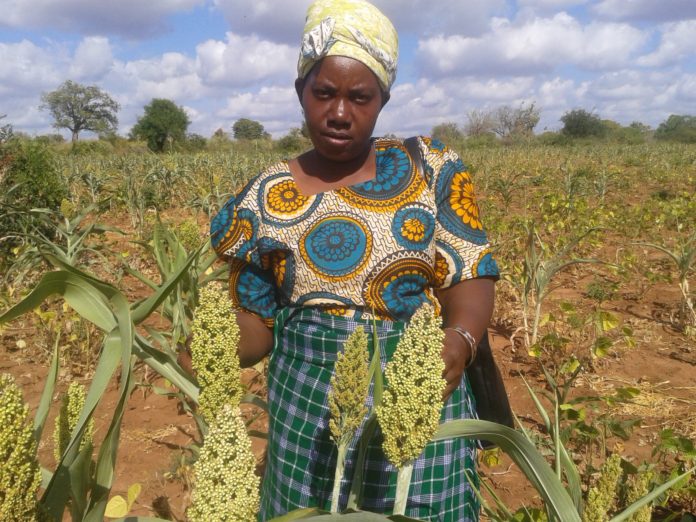
|
Getting your Trinity Audio player ready...
|
By Clifford Akumu
Concerns are rising over increased agro-terrorism threat on porous borders.This has been attributed to instability and laxity in the neighboring countries which is likely to plunge the country into food insecurity.
The country’s vulnerability of an attack using biological weapons is real, warns experts, this would be more lethal than conventional weapons.
“It has become evident that the threat is quite real,” said Prof Phelix Majiwa, principal scientist during a national biosecurity meeting held in Nairobi.
The National Biosecurity workshop for Kenyan Universities held at Jomo Kenyatta University of Agriculture and Technology(JKUAT) recently noted that use of biological material for harmful purposes is becoming an increasing threat.
The workshops are a key component of Denmark-Kenya partnership organised by National Commission for Science, Technology and Innovation(NACOSTI) and Commission for University Education(CUE) partnering with the Centre of Biosecurity and Biopreparedness(CBB) that aims to ensure safety and security in facilities and laboratories with access to biological select agents and toxins of global concern.
Agro-terrorism means attacking the country with a weapon which will destabilize or destroy agricultural industry, specifically by killing food crops and production animals.
The biological weapons come in the form of an imported or locally produced agricultural products including, sugar, maize, rice, flour, yogurt or grains used to attack human population.
Poor capacity in biosecurity-which refers to procedures or measures that protect the population against harmful biological or biochemical substances, remains a major obstacle to agricultural trade in Africa and limits farmers’ incomes and food security.
More interestingly, reckons the experts, is the generally low disconcerting levels of awareness of biosecurity in the country with officials “spending little effort thinking about risks or chances of bioterrorists attack”.
“No one seems to have considered the reality that a bioterrorist attack can indeed be even more lethal,” noted Majiwa.
However, says Prof Majiwa, the country will fall short of its ambitions to tackle such threats unless the government turn pledges into reality.
“There is need to have concrete plans to prevent, or minimise, effects and losses which could be caused by biological attack,” he said.
Some of the most commonly used agents in bioterrorism include sarin neurotoxin, ricin and anthrax.
A national repository of biological isolates-used in making vaccines and diagnostic reagents-is vital in putting the threat in check, notes Majiwa.
“Without knowledge of the whereabouts of different biological isolates, the government will not be in a position to manage some of the diseases,” said Majiwa.
Dr. Roy Mugira, director of technical services at NACOSTI, while lauding the use of science and technology for inclusive social economic growth, noted that under uncertain controls, this may result in insecurity to global stability.
“Universities have a responsibility to enforce regulations guiding the proliferation of biological weapons,” said Mugira in his address read by Dr. Edwardina Ndhine, principal scientists at NACOSTI
Mugira adds that it is crucial to assess the security implications of scientific innovations, but this is not a straightforward matter.
Notably, among African states, South Africa have been active contributors to the Biological and Toxins Weapons Convention (BTWC), but a stronger and more coherent African position on regulatory issues is needed.
Biosecurity policies are therefore being actively pursued in some countries to mitigate the deliberate destructive use of biological agents, knowledge and techniques.
A biosecurity status study conducted by NACOSTI between (Nov 2014-Feb 2015) and surveyed 86 laboratory facilities in Kenya revealed worrying trends.
According to the study,48 of the 86 laboratories had strain collections, while half of the laboratories had no inventory lists of the pathogens.
Worse still,8 per cent had reported to have lost biological pathogens or toxins.
It is these findings, that have propelled the council to tighten the nut on its biosecurity policies and regulations by taking a cue from developed countries like Denmark and South Africa which have taken that route.
“We are currently advocating for a biosecurity framework through a draft bill that would safeguard biological weapons’’.
“Through the partnership, we will also capacity build university researchers, students and academia through biosecurity based courses offered at different levels”
According to Katja Olsen, head of laboratory division at Danish-based Centre for Biosecurity and Biopreparedness, her organisation is keen to build capacity of the eight participating universities in Kenya to respond to biosecurity threats through a coordinated training of the next generation of plant biosecurity scientists.
Olsen notes an effective biosecurity system could boost regional and international trade in agricultural produce from Sub-Saharan Africa.
While sharing the Denmark experience, Olsen reaffirmed the centre’s readiness to work with Kenyan stakeholders to support national and regional effort to develop biosecurity systems in accordance with international obligations.
Today, this sense of biosecurity extends beyond conditions in research laboratories to cover the potential dual use — for good and bad — of applications arising from the new knowledge and techniques emerging from research.
Prof Mabel Imbuga, vice chancellor JKUAT on her part complimented the government’s effort in preaching biological threats awareneress among institutions.
“We have to compliment what the government is doing. Let us carry out our research in safe environments that will not affect the lives of others in the process,” said Imbuga.













